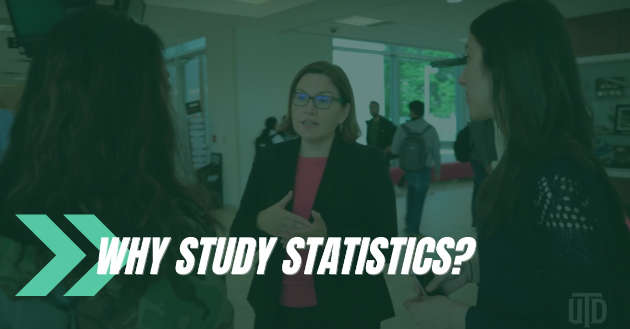
Contents
When I meet new people, one of the common questions they ask me is, “What do you do for a living?” I follow with a mix of pride and hesitation, stating I teach statistics at the university level. Then, I wait for their reaction. Most people are not shy to reply right away with something along the lines of, “I hated that class back in college!” Only a few tell me they loved the subject and claim it was their favorite. I have learned that a middle ground hardly exists when talking about statistics. Most people I know seem to have an extreme opinion about it.
How can you like statistics?
I remember being in college during my sophomore year when I studied statistics for the first time and right away – I fell in love with it. Everything made perfect sense to me. Even though it was all about numbers and there were formulas and intense computation involved, I was able to tell a story at the end. After all these calculations, the power to interpret my findings belonged entirely to me.
First, think about calculations as food recipes. You follow the instructions step by step; once you know you are close enough to the end, you try the food. Tasting what you made is the equivalent of getting your numbers. You can then add your final touches and make variations to the ingredients with your interpretation of the results. These carefully crafted stories add more flavor to the final dish. This is my Italian/Mexican background talking!
When I teach statistics, I convey a heartfelt message to my students: Statistics looks and sounds like any other math course they have taken in the past, but it is more than that. Once you make the calculations using the “basic recipes,” there is a lot of room for improvement. How you interpret your data and what steps you follow to better that recipe are just as important as gathering the data itself. What the data is telling you as well as what it is not, is relevant for your storytelling.
There is so much you learn after working with a raw and messy dataset. It is a time-consuming effort and an extraordinary way to learn what works and what does not work.
What is Standard Deviation?
Among all the topics learned in statistics, I would say the standard deviation is a fundamental concept all business students should master. As we navigate statistics at a basic-level course or even on a more advanced level, simply put: We are trying to understand why our data has variations. For instance, if every student in my class received the same material to study for an exam, and got the same resources and had similar backgrounds, how do we get different grades? The fact is that some students achieved better grades than others, and we need to find out why. What causes the variations in data?
Of course, the question above has a straightforward explanation. Student performance directly affects the result. But even though some variation may be due to exhorted effort, what about the unexplained grade shifts? Thus, we study variations!
What does standard deviation tell you?
Standard deviation comes into the picture to answer, “Why are there variations in data?” To study any data, we must first learn the expected value to obtain. For example, what was the average grade in the exam? Then, we must focus on how we observe higher and lower values when compared to that average. In that intuitive and straightforward example, we are thinking of variation, and it is the standard deviation that is the most critical measure of variation. It possesses helpful attributes (a bit technical to discuss in this blog) that let us use it across both simple and advanced statistical techniques.
When people tell me about how much they hated college statistics, I know they lost a great opportunity. They closed the door to a world of wonder in empirical statistical analysis. Any problem with or without a solution out there, from a person or a company, can be dramatically improved using statistics and statistical analysis.
Therefore, to answer the candid students I hear down the hallway saying, “Why am I taking college statistics?” I can attest that if you take advantage of what you can learn in this class, you will harvest a rare talent. Knowledge of statistics and understanding of concepts like standard deviation can help set you apart in the job market. You will join a selective minority that allowed themselves to explore statistics. The key is to recognize and embrace the storytelling that proper data analysis can offer.
How can you get extra help with statistics?
If you struggle with statistics and standard deviation, you can seek help from your instructor or other classmates, don’t be scared to ask. Also, know there are student resources available.





